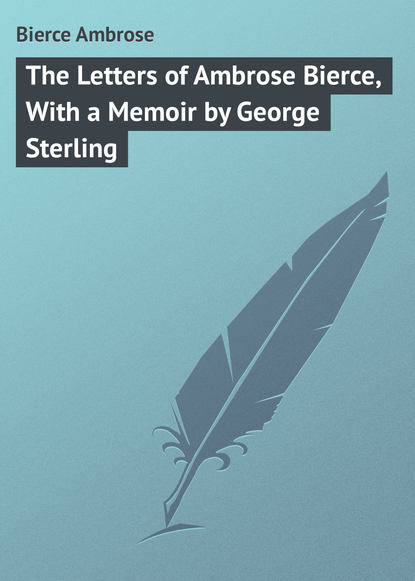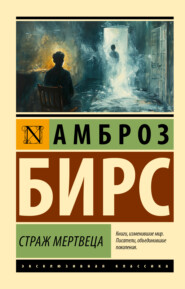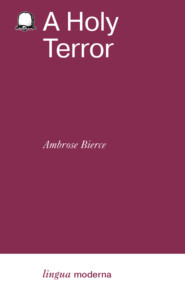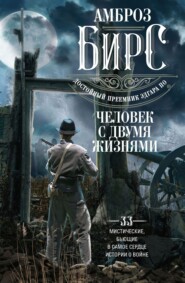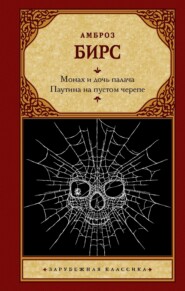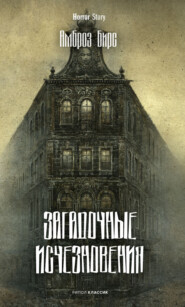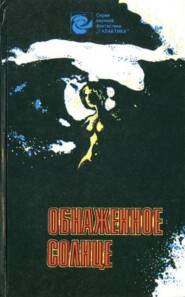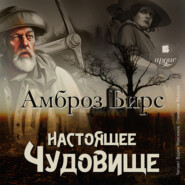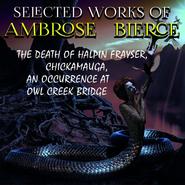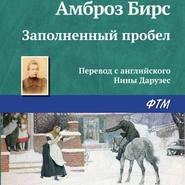По всем вопросам обращайтесь на: info@litportal.ru
(©) 2003-2025.
✖
The Letters of Ambrose Bierce, With a Memoir by George Sterling
Настройки чтения
Размер шрифта
Высота строк
Поля
Washington, D. C,
August 11,
1906.
Dear George,
* * *
If your neighbor Carmelites are really "normal" and respectable I'm sorry for you. They will surely (remaining cold sober themselves) drive you to drink. Their sort affects me that way. God bless the crank and the curio! – what would life in this desert be without its mullahs and its dervishes? A matter of merchants and camel drivers – no one to laugh with and at.
Did you see Gorky's estimate of us in "Appleton's"? Having been a few weeks in the land, whose language he knows not a word of, he knows (by intuition of genius and a wee-bit help from Gaylord Wilshire and his gang) all about us, and tells it in generalities of vituperation as applicable to one country as to another. He's a dandy bomb-thrower, but he handles the stink-pot only indifferently well. He should write (for "The Cosmopolitan") on "The Treason of God."
Sorry you didn't like my remarks in that fool "symposium." If I said enough to make it clear that I don't care a damn for any of the matters touched upon, nor for the fellows who do care, I satisfied my wish. It was not intended to be an "argument" at all – at least not on my part; I don't argue with babes and sucklings. Hunter is a decentish fellow, for a dreamer, but the Hillquit person is a humorless anarchist. When I complimented him on the beauty of his neck and expressed the hope of putting a nice, new rope about it he nearly strangled on the brandy that I was putting down it at the hotel bar. And it wasn't with merriment. His anarchist sentiments were all cut out.
I'm not familiar with the poetry of William Vaughan Moody. Can you "put me on"?
I'm sending you an odd thing by Eugene Wood, of Niagara Falls, where I met him two or three years ago. I'm sure you will appreciate it. The poor chap died the other day and might appropriately – as he doubtless will – lie in a neglected grave. You may return the book when you have read it enough. I'm confident you never heard of it.
Enclosed is your sonnet, with a few suggestions of no importance. I had not space on it to say that the superfluity of superlatives noted, is accentuated by the words "west" and "quest" immediately following, making a lot of "ests." The verses are pleasing, but if any villain prefer them to "In Extremis" may he bite himself with a Snake!
If you'll send me that shuddery thing on Fear – with the "clangor of ascending chains" line – and one or two others that you'd care to have in a magazine, I'll try them on Maxwell. I suspect he will fall dead in the reading, or possibly dislocate the jaw of him with a yawn, but even so you will not have written in vain.
Have you tried anything on "Munsey"? Bob Davis is the editor, and we talked you over at dinner (where would you could have been). I think he values my judgment a little. * * *
I wish I could be blown upon by your Carmel sea-breeze; the weather here is wicked! I don't even canoe.
My "Cynic" book is due in October. Shall send it to you.
Sincerely yours, Ambrose Bierce.
Washington, D. C.,
September 28,
1906.
Dear George,
Both your letters at hand.
* * *
Be a "magazine poet" all you can – that is the shortest road to recognition, and all our greater poets have travelled it. You need not compromise with your conscience, however, by writing "magazine poetry." You couldn't.
What's your objection to * * *? I don't observe that it is greatly worse than others of its class. But a fellow who has for nigh upon twenty years written for yellow newspapers can't be expected to say much that's edifying on that subject. So I dare say I'm wrong in my advice about the kind of swine for your pearls. There are probably more than the two kinds of pigs – live ones and dead ones.
Yes, I'm a colonel – in Pennsylvania Avenue. In the neighborhood of my tenement I'm a Mister. At my club I'm a major – which is my real title by an act of Congress. I suppressed it in California, but couldn't here, where I run with the military gang.
You need not blackguard your poem, "A Visitor," though I could wish you had not chosen blank verse. That form seems to me suitable (in serious verse) only to lofty, not lowly, themes. Anyhow, I always expect something pretty high when I begin an unknown poem in blank. Moreover, it is not your best "medium." Your splendid poem, "Music," does not wholly commend itself to me for that reason. May I say that it is a little sing-songy – the lines monotonously alike in their caesural pauses and some of their other features?
By the way, I'd like to see what you could do in more unsimple meters than the ones that you handle so well. The wish came to me the other day in reading Lanier's "The Marshes of Glynn" and some of his other work. Lanier did not often equal his master, Swinburne, in getting the most out of the method, but he did well in the poem mentioned. Maybe you could manage the dangerous thing. It would be worth doing and is, therefore, worth trying.
Thank you for the Moody book, which I will return. He pleaseth me greatly and I could already fill pages with analyses of him for the reasons therefore. But for you to say that he has you "skinned" – that is magnanimity. An excellent thing in poets, I grant you, and a rare one. There is something about him and his book in the current "Atlantic," by May Sinclair, who, I dare say, has never heard of you. Unlike you, she thinks his dramatic work the best of what he does. I've not seen that. To be the best it must be mighty good.
Yes, poor White's poetry is all you say – and worse, but, faith! he "had it in him." What struck me was his candid apotheosis of piracy on the high seas. I'd hate the fellow who hadn't some sneaking sympathy with that – as Goethe confessed to some sympathy with every vice. Nobody'll ever hear of White, but (pray observe, ambitious bard!) he isn't caring. How wise are the dead!
* * *
My friend Howes, of Galveston, has, I think, nearly finished compiling his book of essaylets from my stuff. Neale has definitely decided to bring out "The Monk and the Hangman's Daughter." He has the plates of my two luckless Putnam books, and is figuring on my "complete works," to be published by subscription. I doubt if he will undertake it right away.
Au reste, I'm in good health and am growing old not altogether disgracefully.
Sincerely yours, Ambrose Bierce.
The Army and
Navy Club,
Washington,
October 30,
1906.
Dear George,
I'm pained by your comments on my book. I always feel that way when praised – "just plunged in a gulf of dark despair" to think that I took no more trouble to make the commendation truer. I shall try harder with the Howes book.
* * *
I can't supply the missing link between pages 101 and 102 of the "Word Book," having destroyed the copy and proofs. Supply it yourself.
You err: the book is getting me a little glory, but that will be all – it will have no sale, for it has no slang, no "dialect" and no grinning through a horse-collar. By the, way, please send me any "notices" of it that you may chance to see out there.
* * *
I've done a ghost story for the January "Cosmopolitan," which I think pretty well of. That's all I've done for more than two months.
I return your poem and the Moody book. Sincerely yours, Ambrose Bierce.
The Army and
Navy Club,
Washington,
December 5,
1906.
Dear George,
Your letter of Nov. 28 has just come to my breakfast table. It is the better part of the repast.
* * *
No, my dictionary will not sell. I so assured the publishers.
I lunched with Neale the other day – he comes down here once a month. His magazine (I think he is to call it "The Southerner," or something like that) will not get out this month, as he expected it to. And for an ominous reason: He had relied largely on Southern writers, and finds that they can't write! He assures me that it will appear this winter and asked me not to withdraw your poem and my remarks on it unless you asked it. So I did not.





